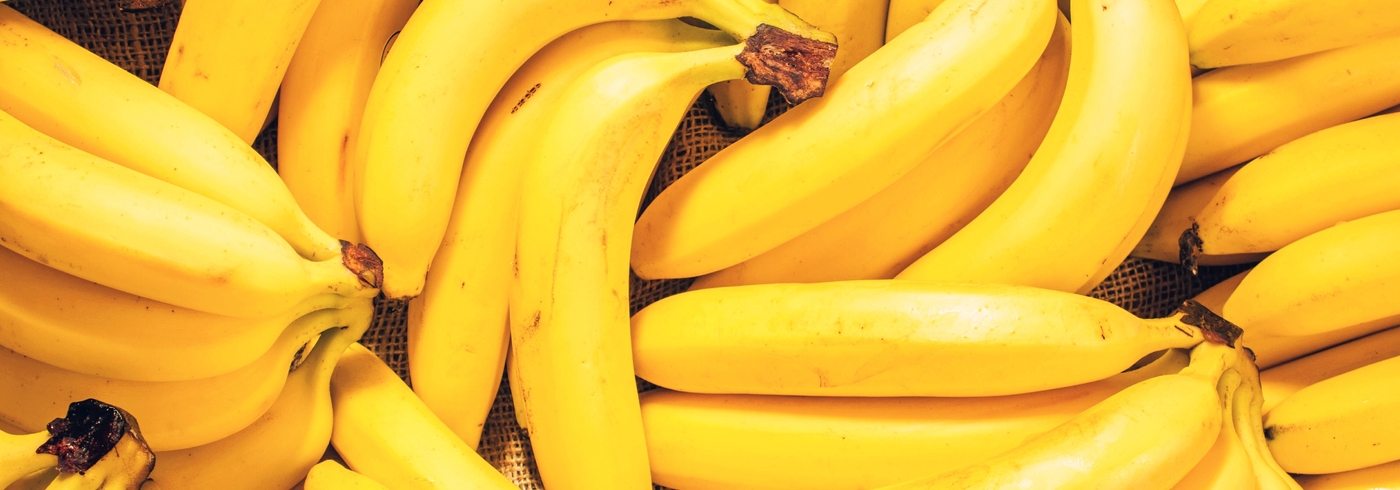
Can Dogs Eat Bananas?
Ever wondered if you can feed your dog bananas? Spoiler alert: you can! Learn more about how your doggo can benefit from this tasty fruit, along with some recipes your dog will love.
We know you love your dog. We're all dog lovers too. And as all dog lovers you know, pet ownership comes with plenty of questions and concerns. You want to do the best for your dog, no matter what, and we're here for you!
Wondering if dogs can eat bananas? We have all the answers you need to make sure you're giving your pup everything they need to live a long, healthy life.
Can Dogs Eat Bananas?
Time is precious, so if you’re here just looking for a quick answer, we don’t want to keep you waiting. The short answer to the question is yes; in most cases, dogs can safely eat a little bit of banana in moderation.
Here’s a brief overview of our top five reasons why:
- Bananas are full of vitamins and minerals!
- You can use bananas to help enrich your dog’s life and stave off boredom.
- Bananas are rich in fiber, which is essential for a healthy digestive system.
- Bananas make for an easy, nutritious snack or training tool.
- You can share bananas with your pet as a bonding experience!
More detailed information below...
Are There Any Nutrition Benefits to Feeding My Dog Banana?
Ounce for ounce, bananas are among the most nutritious fruits out there (both for humans and our canine companions). While they are packed full of many different vitamins and minerals, there are a few that they are primarily known for — potassium, vitamin B6 (pyridoxine), vitamin C, and magnesium.
- Potassium is crucial for healthy heart function while also helping to support the kidneys, bone density, fluid balance, and muscle development.
- Vitamin B6 (pyridoxine) supports both the brain and the body. It supports neurotransmitters (which send messages throughout the nervous system), regulates hormones, and even helps to build protein.
- Vitamin C works similarly in dogs to how it does in humans. The vitamin functions as a powerful antioxidant, supporting the immune system.
- Magnesium helps keep the bones strong while also helping them absorb other vitamins and minerals more efficiently.
In addition to those nutrients, bananas are also rich in fiber. Fiber is a critical component of any diet, especially for dogs with pre-existing stomach problems. It helps move food more easily through the digestive tract, helping reduce the likelihood of constipation and diarrhea. Along with a probiotic, fiber is essential for gut health and regularity.
Are There Any Drawbacks to Feeding My Dog Bananas?
While bananas are okay for your pup to eat, there are some drawbacks to be aware of. You can feed them bananas occasionally, but overindulgence may cause some health issues.
The biggest issue with letting your dog eat bananas too regularly is their calorie count. Small slices won’t add that much to your dog’s diet, but a medium banana comes in at around 100 calories. If you’re giving your dog a banana even a few times a week, that can add a few hundred calories to whatever they’re already eating.
Bananas are also high in natural sugars. While natural sugar is far better for your pet than high fructose corn syrup, it can also lead to some side effects when given too regularly. Sugar is a significant trigger of obesity and can be even more dangerous for dogs with metabolic health issues. It can even lead to tummy troubles like diarrhea (which may also trigger dehydration if left untreated). Like humans, our pets should consume sugar only in moderation.
Monitor for Allergies
Although unlikely, some dogs may have a pre-existing allergy or intolerance to bananas. If you haven’t given your dog bananas before, it’s vital that you start slowly. These reactions usually happen quickly but can also take up to a few hours to appear.
Coughing, sneezing, excessive face rubbing or itching, hives, or difficulty breathing should all be evaluated as soon as possible by your veterinarian.
How To Add Banana to Your Dog’s Diet
If you want to add a little more excitement to your dog’s diet, bananas are a perfect way to do that. While you can cut up slices and feed them to your pet like you would any other treat, you can also use bananas in a variety of more creative ways.
For instance, try mashing up half a banana and adding it to your dog’s dry food. You can also mix it with peanut butter and put it inside your dog’s Kong toy.
If your dog loves bananas, but you don’t love the slimy feeling it leaves behind, try freezing the entire banana. Once it’s frozen, you can peel and slice it without making a huge mess. You can even keep the banana slices in the freezer all year round! They make especially great treats when the temperatures start to climb.
Stick With Raw Bananas
Instead of cutting up a banana for your dog, you may be tempted just to feed them those banana chips that you’ve been keeping in your cabinet as a healthier snack for yourself.
While this is definitely a timesaver and okay to share on rare occasions, banana chips contain too much sugar to be a regular part of your dog’s diet. If you like to bake, you can easily make your own banana chips in the oven. That way, you can avoid the excess sugar but still have a healthy treat for your dog.
Watch for the Peel
Some of our dogs are more like goats — they’ll eat nearly anything and everything around them. However, just because they can doesn’t mean they should! Although banana peels are not considered “toxic” to dogs, they contain an excessive amount of indigestible fiber.
This can cause constipation or even a complete blockage, which often requires surgical intervention to fix. Take the time to peel the banana before giving it to your pet, and contact your veterinarian if they have gotten into any whole bananas on their own.
How Treats Can Help You Bond With Your Pet
Your pet looks to you for guidance, love, support, and scratches behind the ears. Our relationship with our pets is a beautifully unique one. Treats are an excellent way for you to increase your bond with your pet even further. You can even use treats, like banana slices, to bond with a new pet.
Most people think of treats as a way to train your pet, and they absolutely can be! However, when it comes to getting your pet to trust you, very few things go further than food.
Remember, even if you don't think you're "training" your dog, they always look to you for cues. The way you respond to them tells them what you expect, and using food only sweetens the pot. Think about what you may be teaching your dog before giving them a treat, for better or for worse.
Remember, even when you're just using treats as a way to bond with your dog, don't do it too often. If you do, your dog will begin to expect them, and it becomes less of a bonding experience and more of a tradeoff for cuddling with you.
Surprise your dog with a banana slice from time to time when they least expect it to keep them on their toes. The goal is to have a happy, healthy relationship with your pup.
A Note on Nutrients
As nutritious as bananas and other treat-worthy fresh fruits and veggies can be, a well-balanced dies should be how your dog gets what they need to stay as healthy as possible.
That said, we say “should” for a reason — in a lot of cases, pups can benefit from supplementing with a multivitamin. In addition to ensuring that your dog gets all of their essential vitamins and minerals, you can also help support their system with other beneficial ingredients like omega-3s and CoQ10 that are only concentrated in a few ingredients your doggo may not be getting on a regular basis.
For questions about which supplements may be best for your pup, check out our free Virtual Vet Consult.
Conclusion: Give Bananas A Chance!
Can dogs eat bananas? Absolutely yes! Bananas can be a healthy part of a balanced, nutritious diet when given in moderation. They are full of potassium, magnesium, fiber, and other essential vitamins and minerals that will help your doggo live their best life. What more could you want as a responsible pup parent?
For more tricks for helping your dog stay healthy for as long as possible, follow us at Finn. Whether you are a novice pet owner or have owned dogs for as long as you can remember, we're here to give you the tips you need to help your sidekick thrive.
Sources:
Overview of the Nervous System - Nervous System | Merck Veterinary Manual
Disorders of the Stomach and Intestines in Dogs - Dog Owners | Merck Veterinary Manual
Diabetes Mellitus in Dogs and Cats - Endocrine System | MSD Veterinary Manual



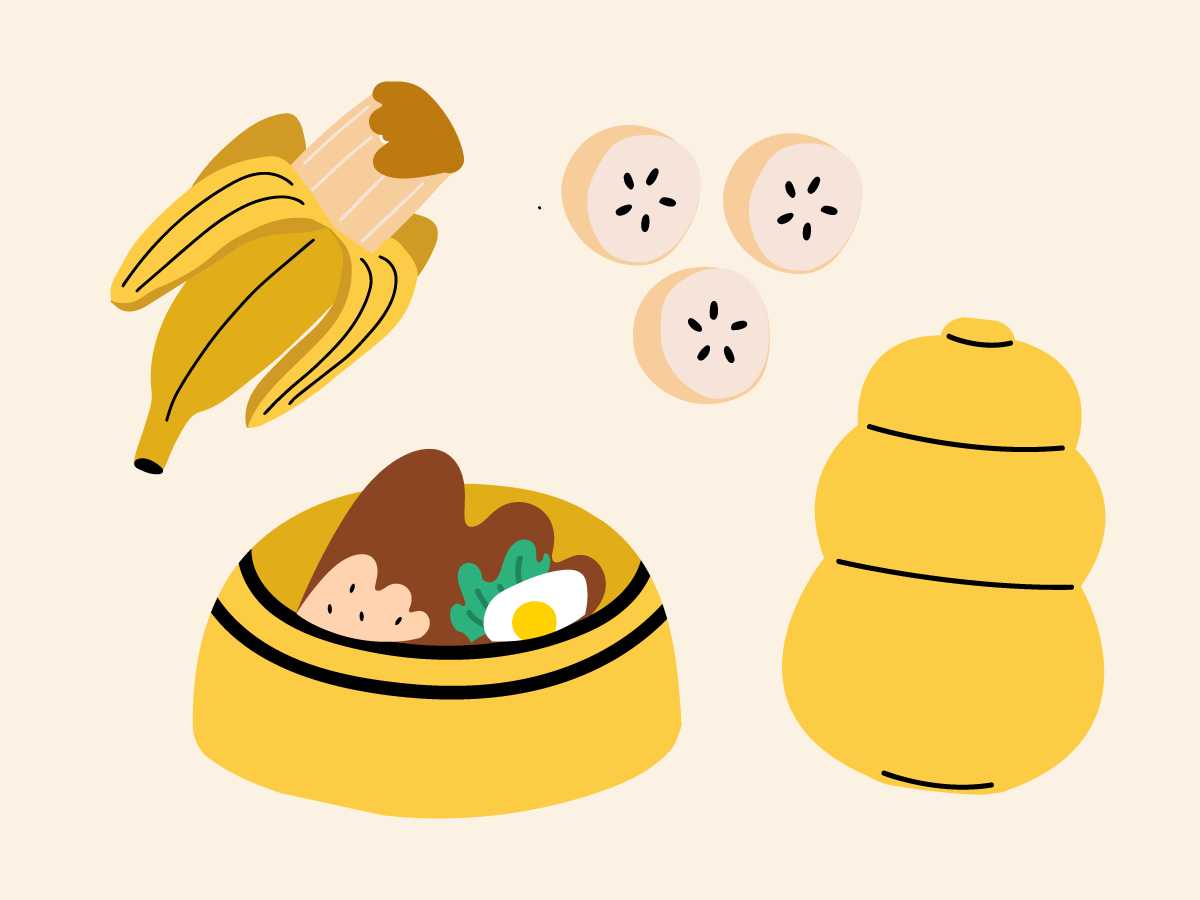
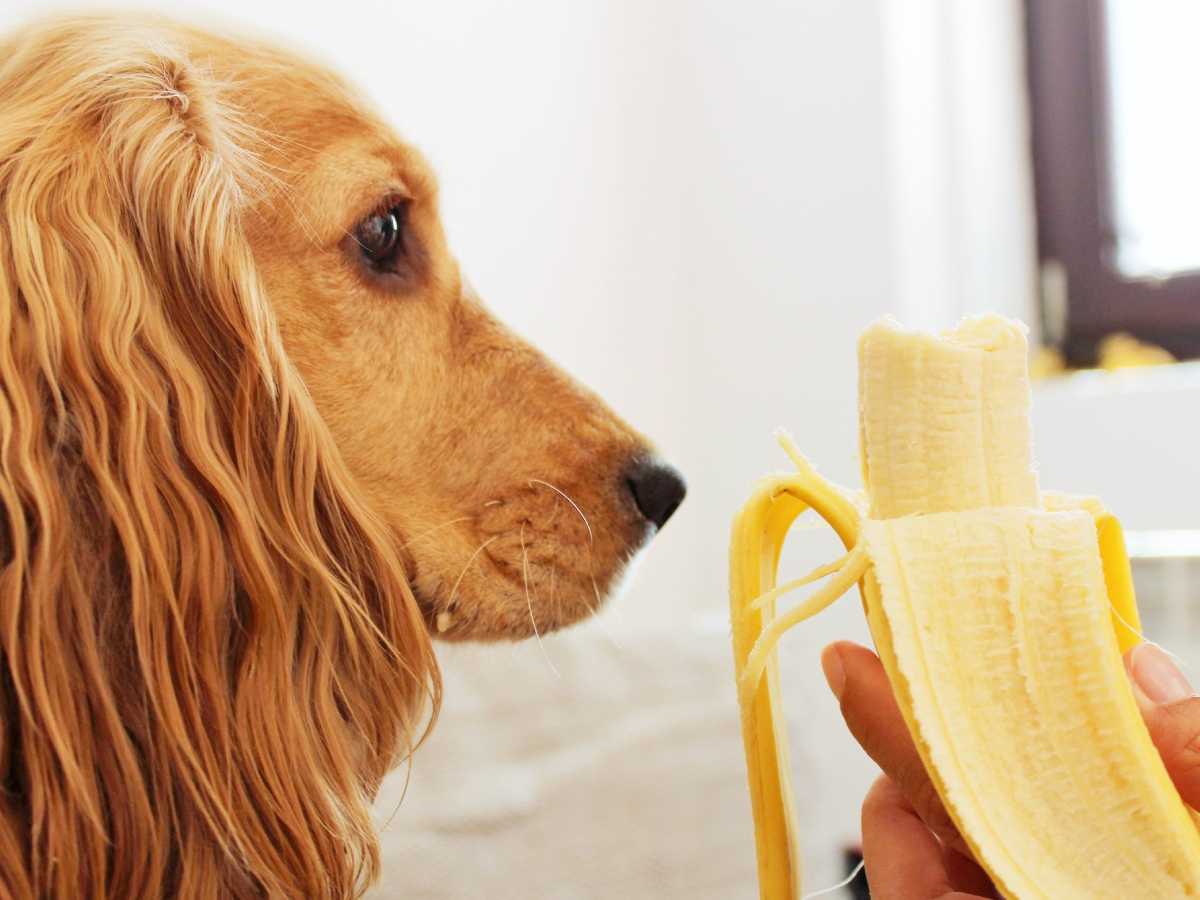
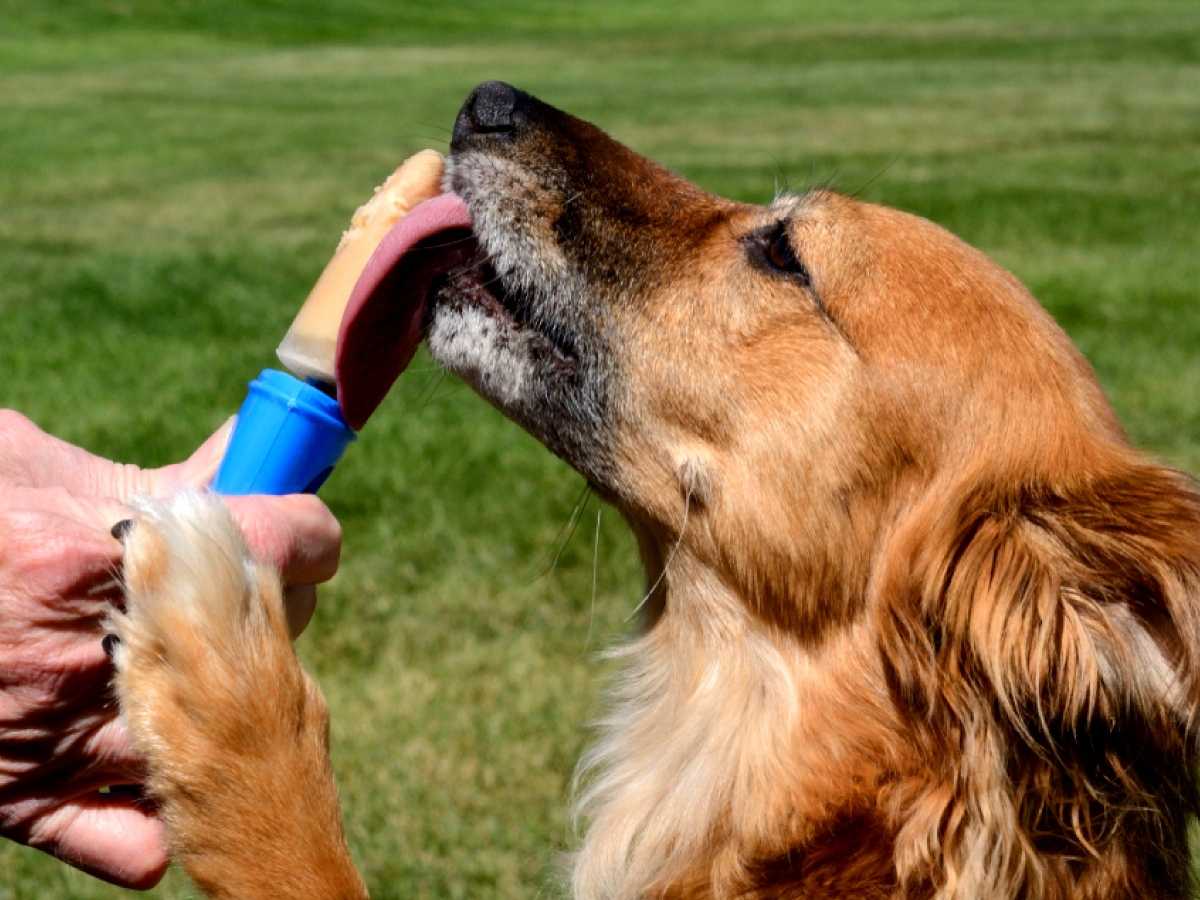
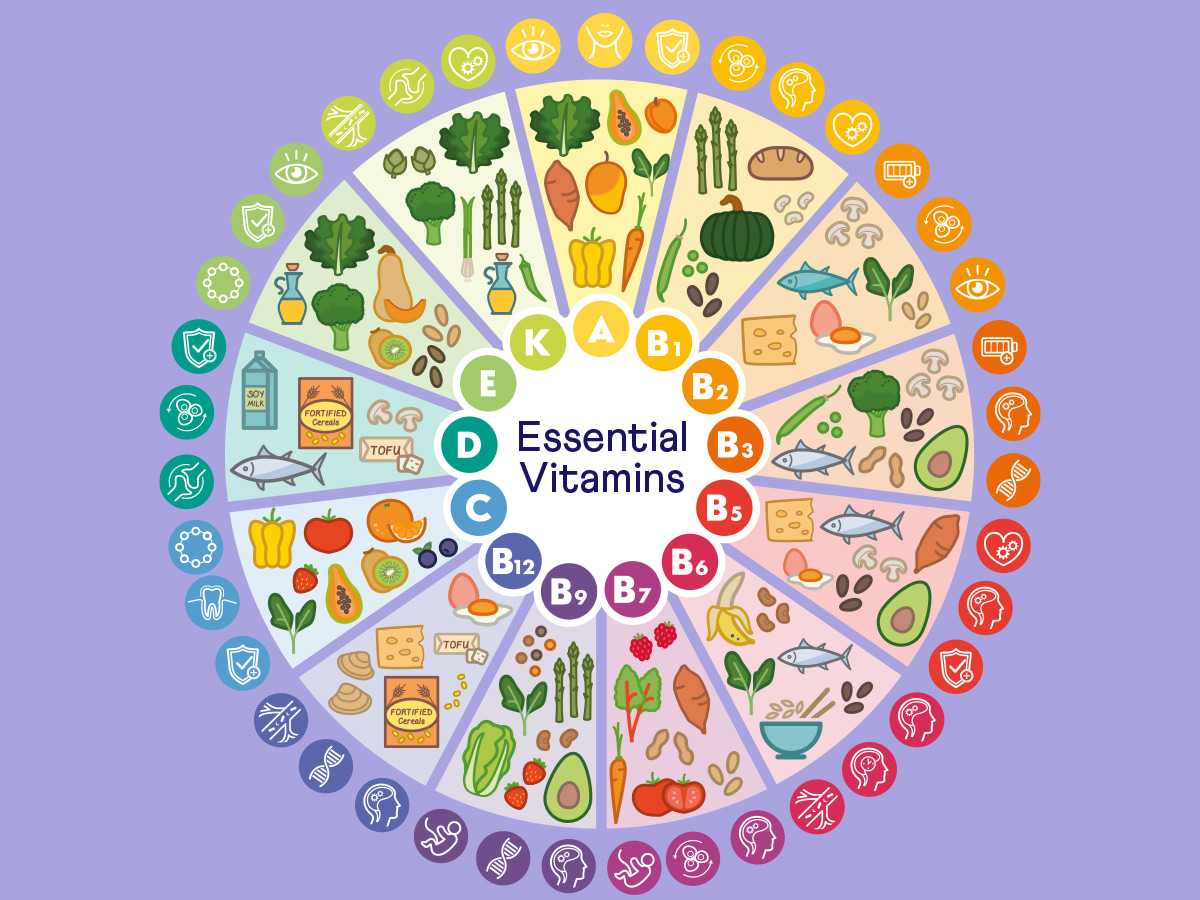
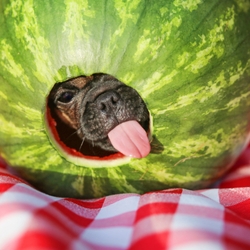
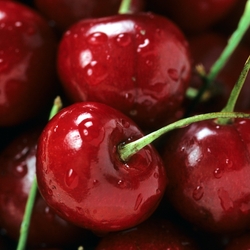
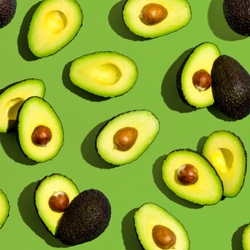
Comments: